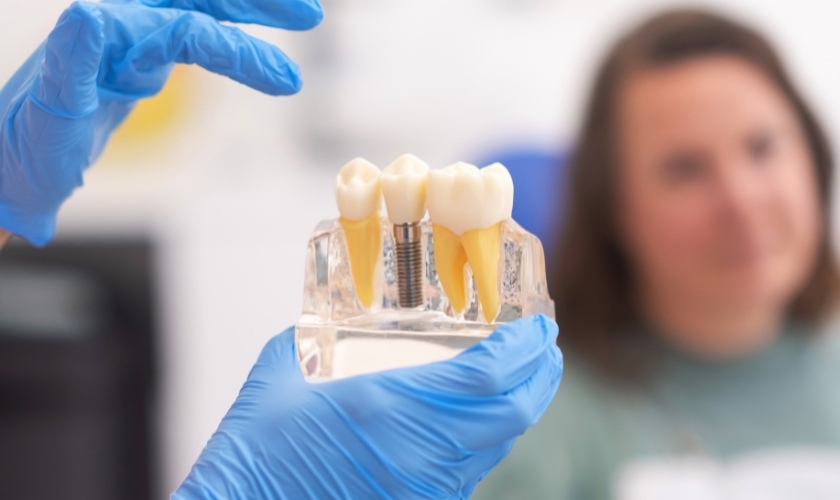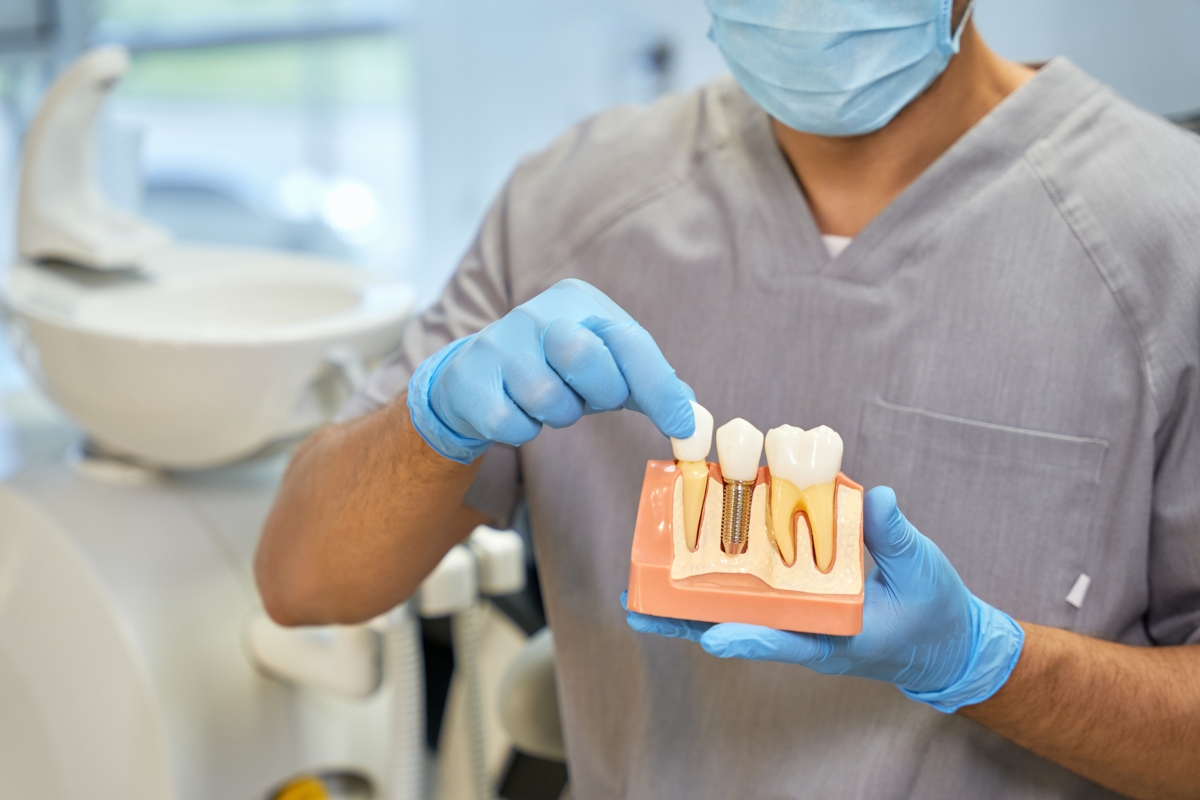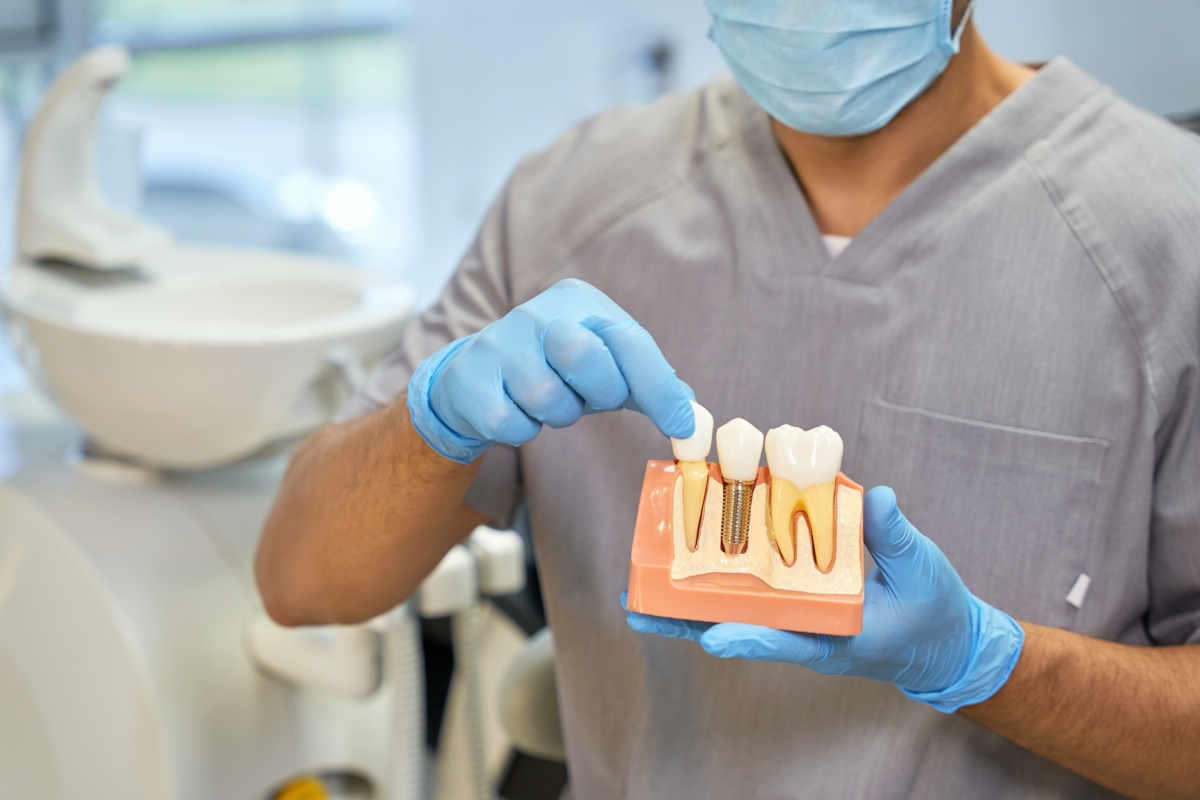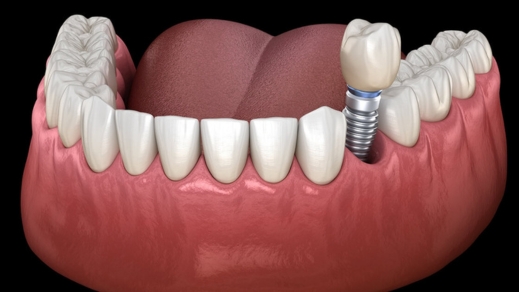We accept Medicare
What to Know About the Initial Healing Phase After Dental Implant Surgery

Dental implant surgery changes your smile, and it changes your health. The success of the procedure is in the first six weeks. Healing is pain, swelling, and diet, which many patients are not prepared for.
Ignoring instructions after surgery can result in serious complications. Proper care allows implants to become firmly attached to the jawbone. Symptoms, food restrictions, oral care, lifestyle modifications, and warning signs are all covered for readers to learn. Every step matters at this critical recovery stage of long-term implant success.
Learning About the Early Healing Stage
Dental implant surgery initiates an immediate body tissue repair process. The implant blends with nearby bone through osseointegration. Osseointegration creates a stable support framework for replacement teeth.
Healing varies from patient to patient but is usually done in weeks. The body works at this stage to strengthen tissues. The success of osseointegration relies on proper care and lifestyle.
Following all directions aids in the growth of bone and prevents complications. The early stages of healing set the foundations for long-lasting implant stability and health.
Symptoms You May Find Common
Implant surgery usually produces acceptable side effects while healing. Mild pain, swelling, and bruising occur within the first few days. Most patients have mild bleeding or tenderness in the vicinity. These issues are to be anticipated and improved with rest and care.
Severe swelling, profuse bleeding, or agony that is unbearable requires an immediate reaction. Initial discomfort is a sign that the body is repairing tissues and adapting to the implant. Establishing the distinction between regular healing and harmful complications protects patients. Care provides for timely attention and implant success.
Diet and Dietary Instructions After Surgery
Proper diet after getting dental implants in Orlando hastens healing. Yogurt, mashed potatoes, and smoothies are wonderful food choices. Tissue healing and energy are increased with high-nutrient meals.
Avoid chewing over the surgical site to prevent irritation. Hot, spicy, or crunchy foods produce pain and inflammation. Steering clear of straws will also protect the implant site.
Being well-hydrated with plenty of water ensures faster healing and less inflammatory reaction. Smart food selection translates into the body’s best acceptance of the new implant.
Oral Hygiene during the Healing Stage
Good oral hygiene after dental implant surgery is important. Patients need to clean very gently and avoid touching the implant site. Soft-bristled toothbrushes prevent applying unnecessary pressure to sensitive tissues.
Saltwater rinses ensure that the mouth remains free of bacteria and reduce swelling. Gentle mouth rinses can also be recommended by your dentist. Brushing must be slow and cautious around the surgical sites.
Cleanliness will protect the wound from infection and speed up healing. Proper oral care during this time ensures long-term implant stability and health.
Activity and Lifestyle Changes
Healing after dental implant surgery is influenced by lifestyle. Rest for the first days is necessary. Vigorous exercise enhances blood flow and reduces edema near the site of surgery.
Avoid smoking because it slows down bone healing and subjects the implant to a higher risk of failure. Alcohol intake should be reduced to prevent irritation. Walking is a light activity that enhances circulation without straining the body.
Small lifestyle changes facilitate an easier recovery after getting dental implants in Orlando. Resting and avoiding bad habits improve the implant success rate.
Warning Signs Necessitating Professional Attention
Complications after dental implant surgery must be identified early. Prolonged bleeding that will not stop is a warning sign. Bad pain that fails to respond to medication is a sign of potential problems. Painful swelling or pus discharge signifies infection. Fever with persistent discomfort should set alarm bells ringing.
Such patients should consult their dentist urgently. Quick response prevents implant loss and other adverse complications. Red flag detection assures cure and ensures proper oral health. Immediate contact with your dentist is vital.
How to Facilitate Long-Term Success
Long-term success of dental implant surgery is dependent on follow-up appointments. Ongoing checkups allow dentists to monitor healing and stability. Gradually resume normal eating habits as tissues become more resilient.
Good diets and hydration ensure bone and gum health. Patients may return to activities gradually without continuing destructive behaviors. Proper oral hygiene measures prevent implants from lasting for years.
Protecting the new implant is a heavy responsibility and requires attention daily. Taking time to do it right now ensures long-term results.
Recovery after dental implant surgery takes effort, patience, and care. Strict adherence to a few do’s and don’ts is safer and more effective in providing stability. Routine discomforts fade with the passage of time and good practices.
Complications are reduced if patients are well educated and observant. Success is diet-dependent, hygiene, and lifestyle changes.
Arrange a follow-up appointment with us to ensure your healing happens safely and successfully. It is action today that instills confidence in tomorrow’s smile.



